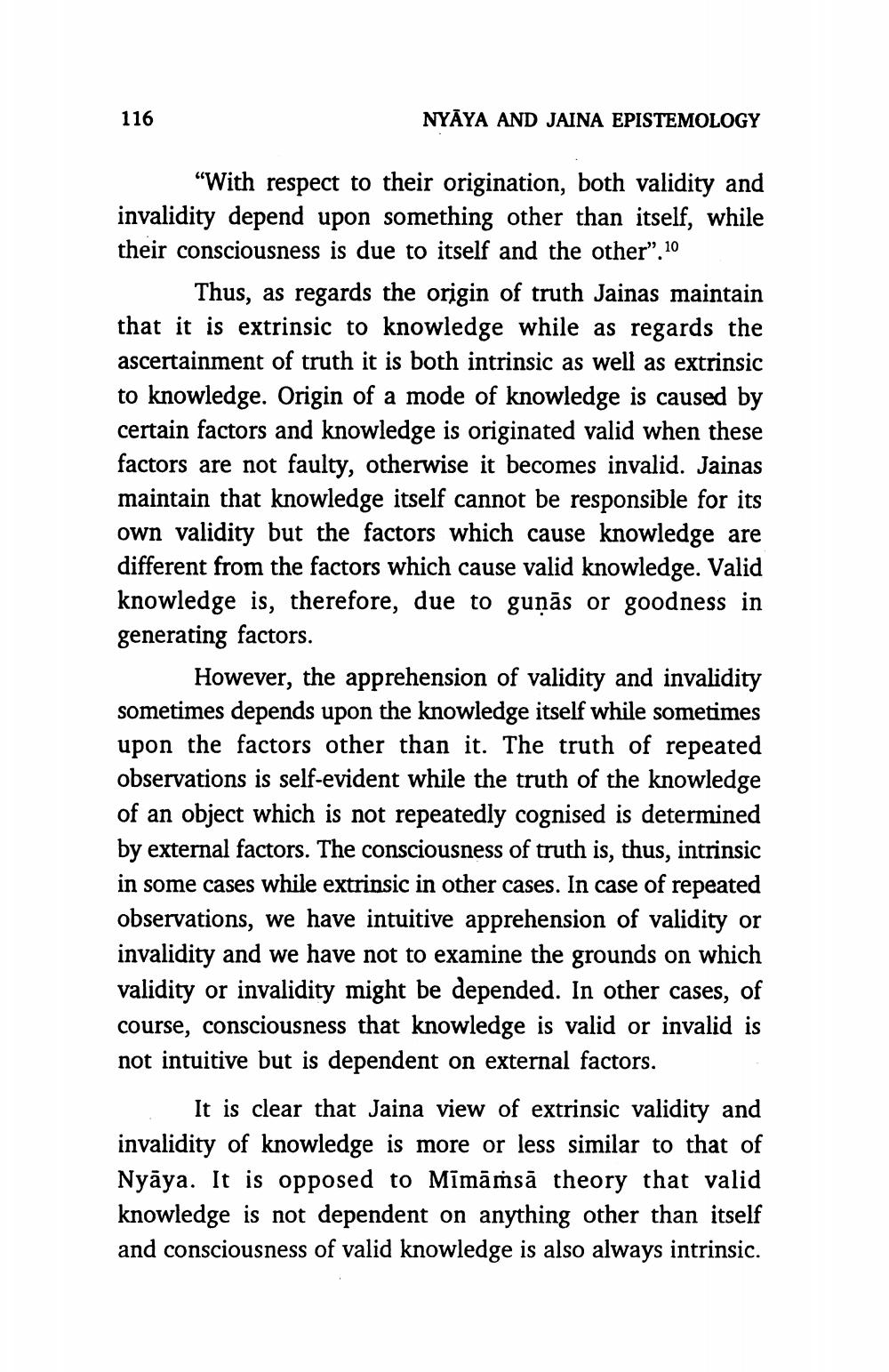________________
116
NYAYA AND JAINA EPISTEMOLOGY
“With respect to their origination, both validity and invalidity depend upon something other than itself, while their consciousness is due to itself and the other”. 10
Thus, as regards the origin of truth Jainas maintain that it is extrinsic to knowledge while as regards the ascertainment of truth it is both intrinsic as well as extrinsic to knowledge. Origin of a mode of knowledge is caused by certain factors and knowledge is originated valid when these factors are not faulty, otherwise it becomes invalid. Jainas maintain that knowledge itself cannot be responsible for its own validity but the factors which cause knowledge are different from the factors which cause valid knowledge. Valid knowledge is, therefore, due to guņās or goodness in generating factors.
However, the apprehension of validity and invalidity sometimes depends upon the knowledge itself while sometimes upon the factors other than it. The truth of repeated observations is self-evident while the truth of the knowledge of an object which is not repeatedly cognised is determined by external factors. The consciousness of truth is, thus, intrinsic in some cases while extrinsic in other cases. In case of repeated observations, we have intuitive apprehension of validity or invalidity and we have not to examine the grounds on which validity or invalidity might be depended. In other cases, of course, consciousness that knowledge is valid or invalid is not intuitive but is dependent on external factors.
It is clear that Jaina view of extrinsic validity and invalidity of knowledge is more or less similar to that of Nyāya. It is opposed to Mimāṁsā theory that valid knowledge is not dependent on anything other than itself and consciousness of valid knowledge is also always intrinsic.




